
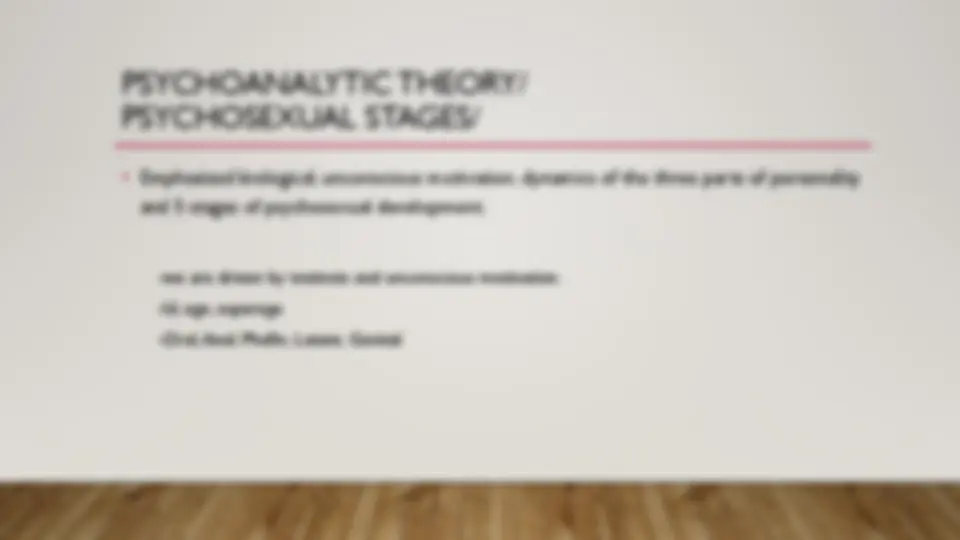
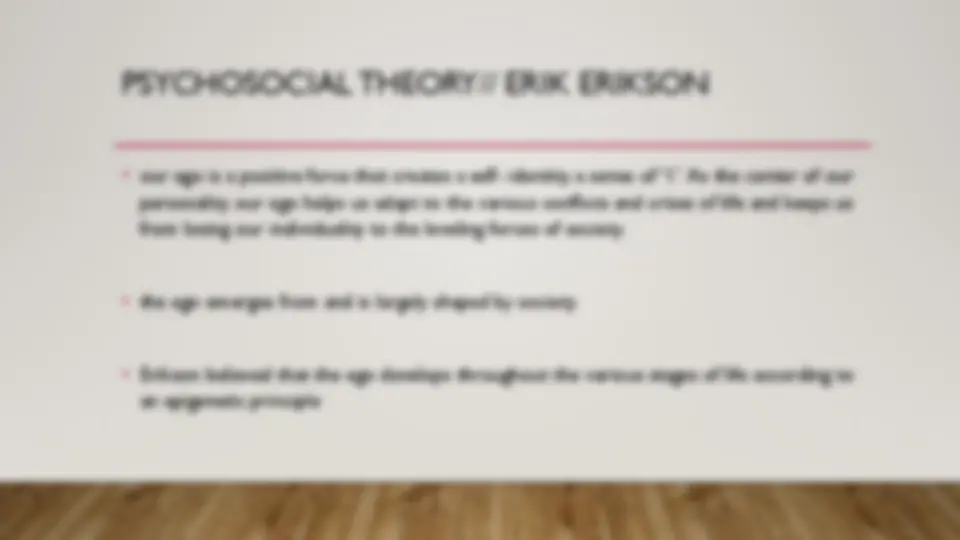
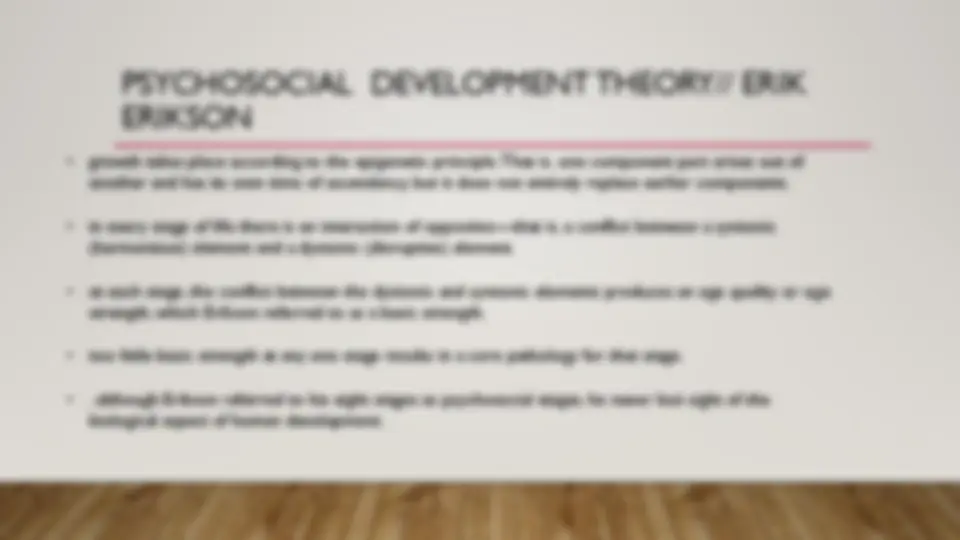


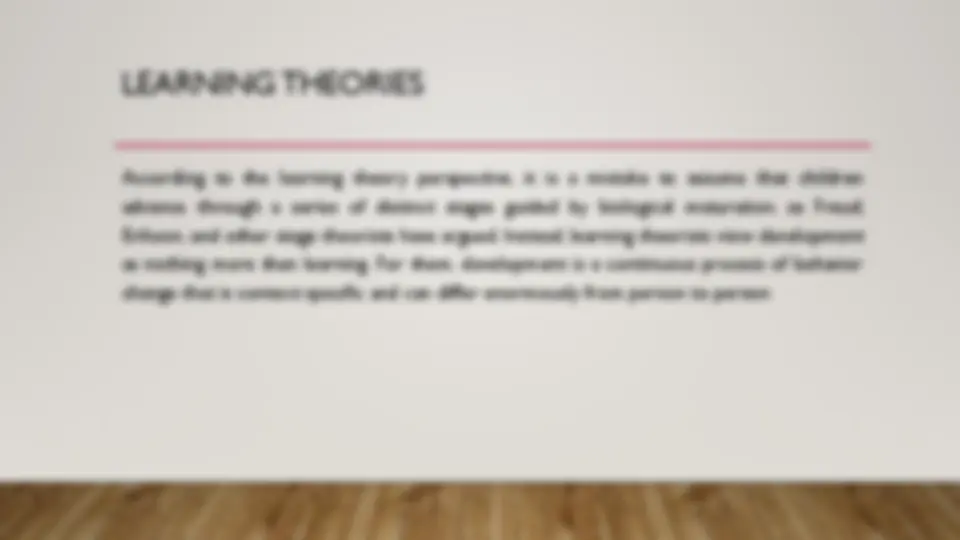
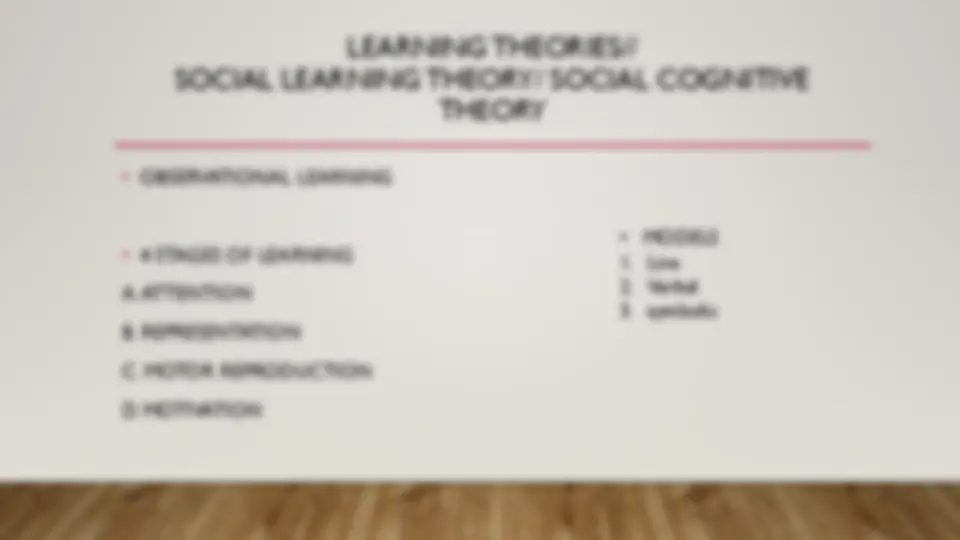
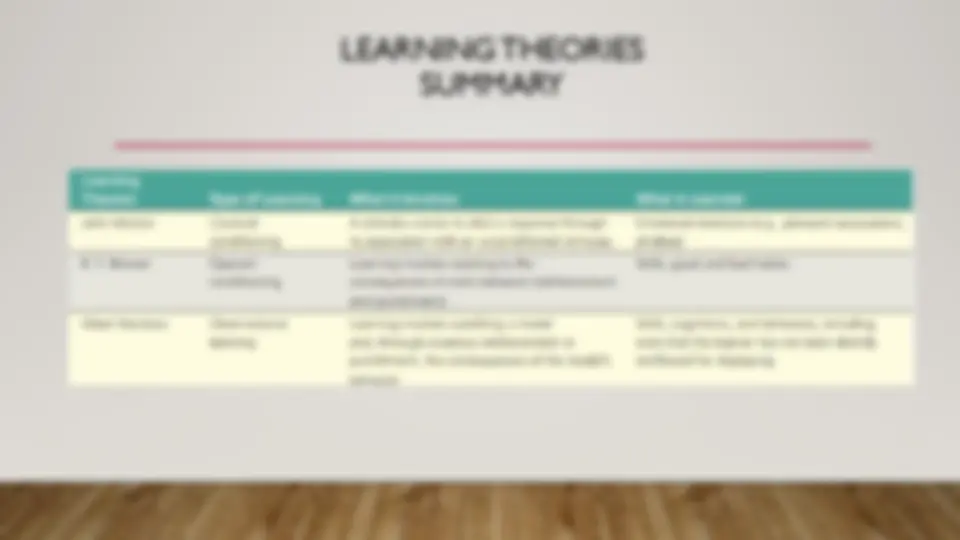
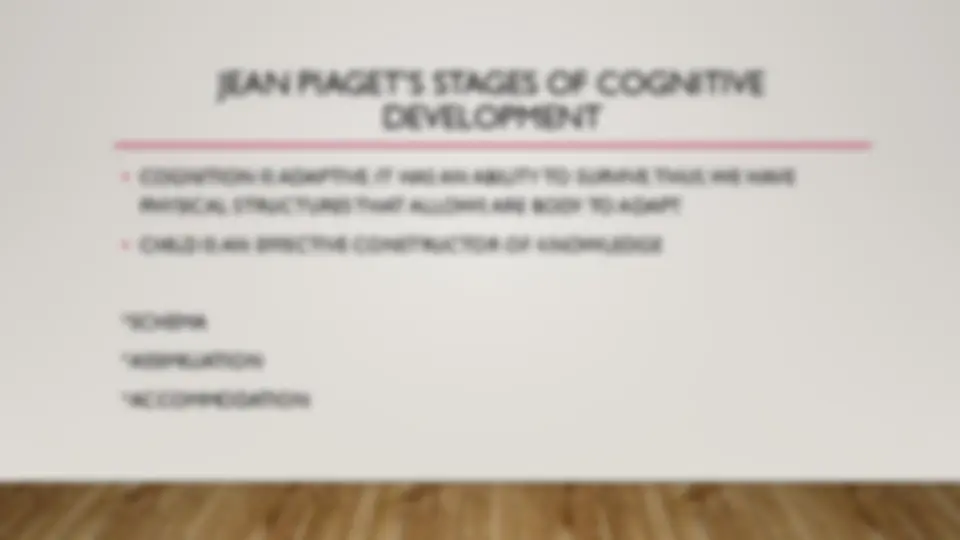
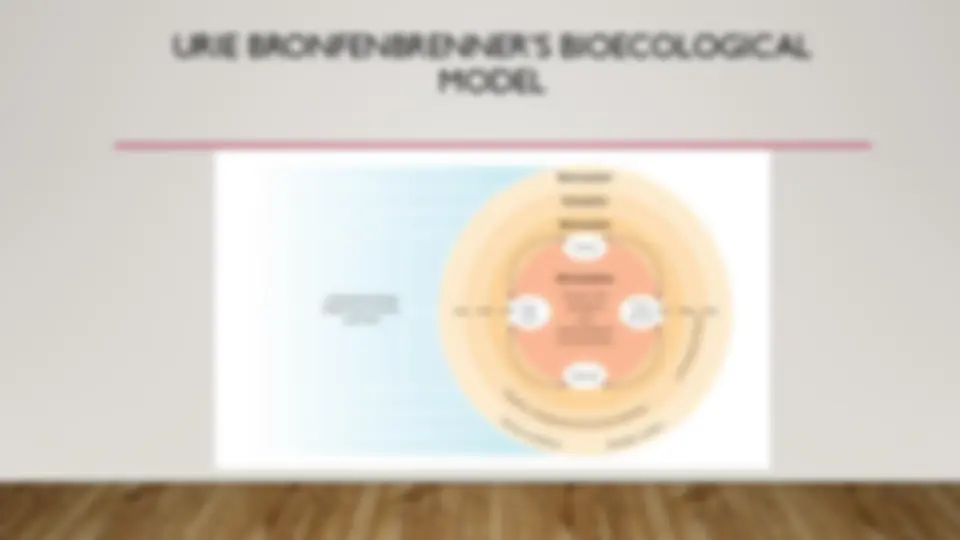



Study with the several resources on Docsity

Earn points by helping other students or get them with a premium plan


Prepare for your exams
Study with the several resources on Docsity

Earn points to download
Earn points by helping other students or get them with a premium plan
Community
Ask the community for help and clear up your study doubts
Discover the best universities in your country according to Docsity users
Free resources
Download our free guides on studying techniques, anxiety management strategies, and thesis advice from Docsity tutors
Various theories of human development and learning, including Erikson's psychosocial development theory, learning theories, Piaget's stages of cognitive development, and Vygotsky's sociocultural perspective on cognitive development. It explores questions related to nature vs. nurture, activity vs. passivity, continuity vs. discontinuity, and universality vs. context. The document also provides a summary of Erikson's eight stages of the life cycle and explains classical and operant conditioning.
Typology: Slides
1 / 19

This page cannot be seen from the preview
Don't miss anything!












According to the learning theory perspective, it is a mistake to assume that children advance through a series of distinct stages guided by biological maturation, as Freud, Erikson, and other stage theorists have argued. Instead, learning theorists view development as nothing more than learning. For them, development is a continuous process of behavior change that is context specific and can differ enormously from person to person